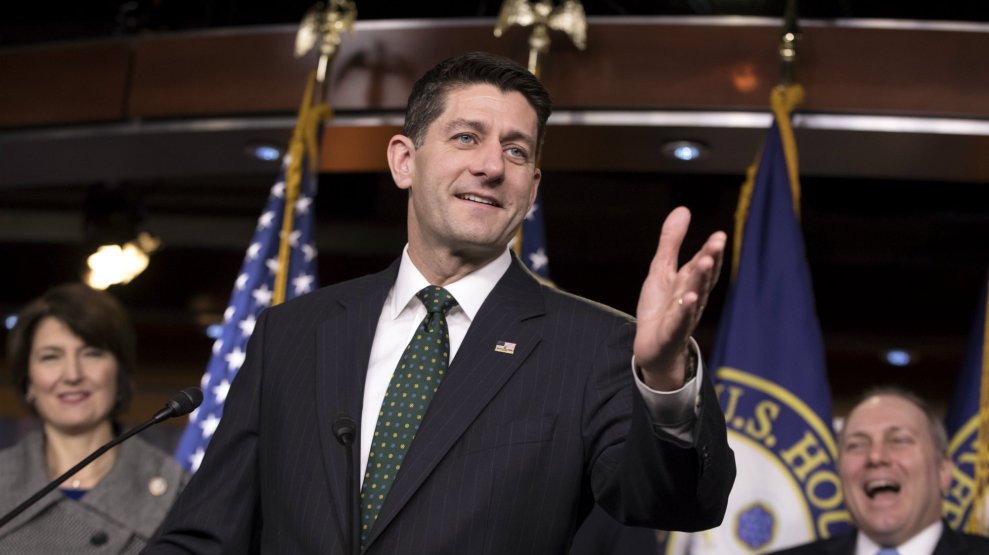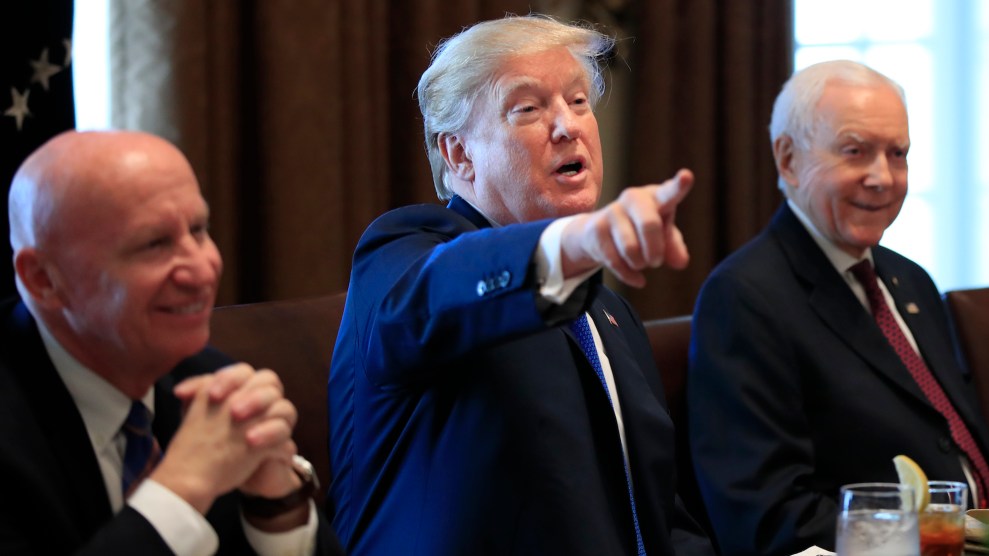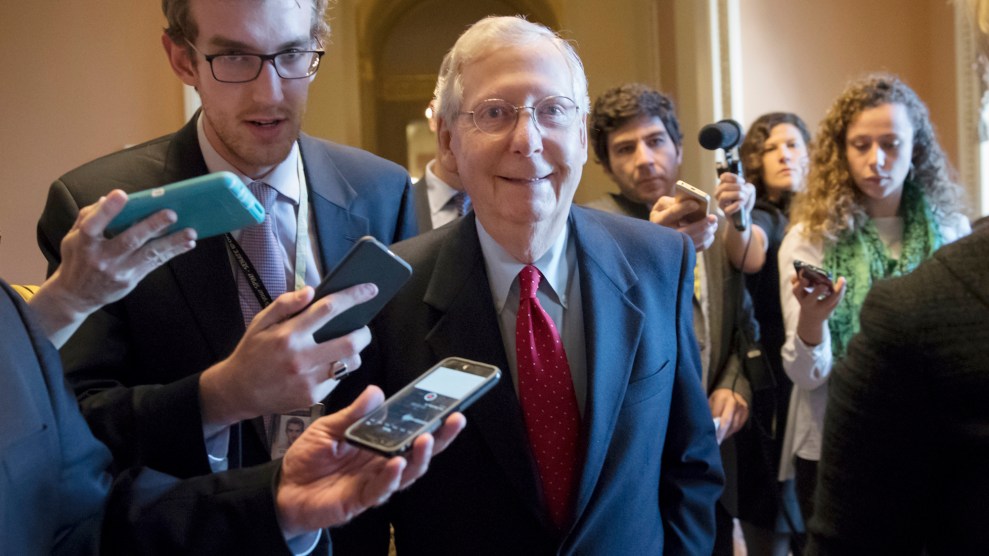
J. Scott Applewhite/AP
The House and Senate released their final version of the tax bill late Friday afternoon, following weeks of high-profile deliberations over the biggest tax overhaul in the last 30 years.
It includes a last-minute expansion of the child income tax credit, after Sen. Marco Rubio (R-Fla.) threatened to vote against the bill without a more generous credit. Other changes include lowering the top individual tax rate to 37 percent from 39.6 percent, and eliminating the corporate alternative minimum tax.
As Mother Jones has reported previously, the tax bill would overwhelmingly benefit the wealthiest Americans, providing corporations with a permanent tax cut while giving fewer, temporary tax cuts to individuals. The centerpiece of the bill is the corporate tax cut, which drops the current 35 percent rate down to 21 percent. That reduction won’t help regular employees all that much, as experts estimate that about 75 percent of the benefits from that cut will end up in the pockets of company owners. Republicans’ claims that the tax bill will “pay for itself” are also extremely dubious: A report from Congress’s Joint Committee on Taxation calculated that the tax bill passed by the Senate in early December would add $1 trillion to the deficit over the next 10 years, even after accounting for any economic growth produced by the tax cuts.
The tax bill heads for a vote next week, and Republican lawmakers hope that the bill will be signed before the end of the year. The bill received a major boost Friday afternoon when Sen. Bob Corker (R-Tenn.) announced his intention to vote for the bill. Corker was the only Republican in the Senate to vote against the bill earlier this month.
Read the text of the final bill here:
















